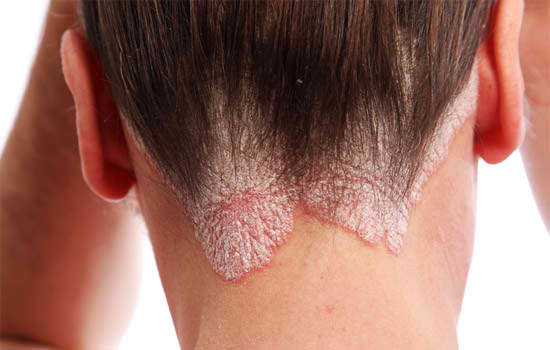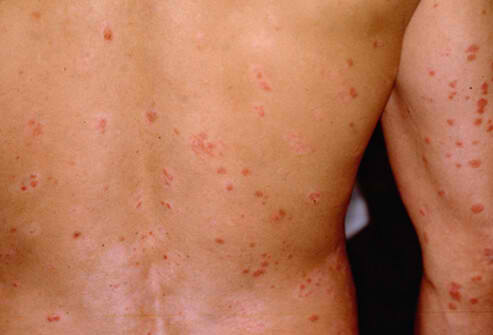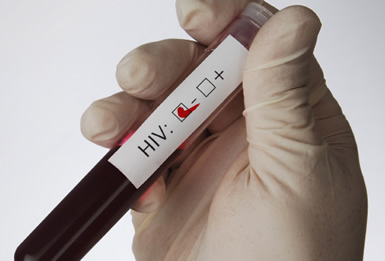Health Stuff
8 Healthy Foods for Manageable Peri-Menopause
Peri-menopause is the phase in a woman’s life before she becomes menopausal. This could last for a couple of months or sometimes years, and is often accompanied with irregular menstrual cycle, disrupted sleep, hot flashes, mood swings, fluctuating sexual drive and changes in weight and metabolism.

The good news is that there’s plenty of ways to help manage or even eliminate these symptoms by stocking your pantry with the right food. Here are seven delicious and nutritious foods that can help support your hormonal imbalance.
- Salmon: Salmon is one of the best sources of omega-3 fatty acids. Enjoy it glazed, roasted or marinated with a bit of salt and pepper and a squeeze of fresh lemon.
- Lean Meat: Always pick turkey or chicken breast over fatty beef brisket. Roasting a whole chicken is so much easier than you think. Just season it with olive oil, salt, pepper and rosemary, and you’ll have enough meat for the entire day.
- Broccoli: Rich in vitamin C and fibre, broccoli helps regulate metabolism. Add it to a sautéed bunch of your favourite vegetables or make broccoli-slaw out of it to go with your turkey sandwich.
- Oranges: Loaded with antioxidants, fibre and vitamin C that can help manage blood sugar, oranges make a healthy snack with a serving of nuts in between meals. Don’t just juice it; peel it and eat the whole thing.

- Pineapple: Studies show that pineapple helps reduce hot flashes and night sweating. Try freshly juiced pineapple with cucumber and basic for a healthy, non-alcoholic cocktail.
- Avocado: Reduce fat intake and maintain your weight by substituting butter and cheese with avocado. Spread it on your toast or make a creamy sauce out of it for your pasta dish.
- Nuts: Almonds, Brazil nuts and walnuts are good fats that contain selenium, magnesium and antioxidants. Chop up some and throw them in your salad or eat a handful for snacks.
- Beans and Lentils: Another source of fibre, beans and lentils help regulate your metabolism and stabilize blood sugar—and is also said to help regulate mood swings. Beans and lentils are a filling side dish or can also be the main event for meatless Mondays.
Peri-menopause is the beginning of the new phase in your life and an opportunity to balance the health aspects of your life that no longer serves you well. It is the time to take extra care of your well-being, and your diet is a good place to start.

Understanding Psoriasis and Its Causes
You always wish to have a blemish free skin but you are always bothered by psoriasis. Psoriasis is a skin disorder. It is the most perplexing and insistent of all skin disorders. The disorder is characterized by incessant multiplication of the skin cells (up to ten times faster than the normal). You often see raised and red plaques concealed with white scales.

Most cases, it usually occurs on scalp, elbows, knees and other parts of the body like feet and torso. There are many symptoms but it will vary depending on which type you have. If you have plaque psoriasis, common symptoms include red plaque skin and silver scales. There will be lesions but it will be itchy and at some painful as they can crack leading to bleeding. If you have fingernails and toenails discoloration and pitting, you have plaque psoriasis.
Psoriasis is so perplexing that it has different forms (aside from plaque psoriasis). Some forms include psoriatic arthritis, pustular psoriasis, guttate psoriasis, inverse psoriasis and erythrodermic psoriasis. Psoriatic arthritis is perhaps one of the most painful forms as it can lead to swelling of the joints. The pustular psoriasis is defined by scaly and red skin especially on palms and feet. The guttate psoriasis is defined by red but small spots on limbs and torso.

Inverse psoriasis on the other hand is defined by shiny and red lesions that usually appear in armpits, under breasts, groin area and other skin folds. Lastly, erythrodermic psoriasis is defined by fiery redness and scale shedding. This form is usually triggered by different factors such as infection, sunburn and infection. For people suffering from this form of psoriasis, it is better that they consul doctor right away as it can lead to illness at the end of the day.
There are many doctors here in Singapore that can help you deal with psoriasis. But before anything else, it is important that you know the causes of psoriasis. Many factors are in play from emotional stress to infection. Recent studies show that abnormality of the immune system can aggravate the situation. Psoriasis can run in the family but some acquired it through lifestyle choices.
The good news is that with the right treatment, the symptoms will surely subside in time. The trick here is to be consistent with the regimen and follow the doctor. If you really want to prevent flare up, be sure to live healthy. Take psoriasis as a challenge or hurdle you have to jump.

Natural Supplements for Annoying Headaches
As much as you want to go about your daily life unscathed, there are times that you suffer headache. Enduring headache is counterproductive thereby you should do everything in your power to ease if not totally eradicate it. Headaches are caused by different reasons and almost all Singaporeans experienced it.

Speaking of easing it, there are many treatments that you can consider but the first thing that you have to consider is to determine the root cause. The good news is that you can seek for the help of doctors. Do not hesitate to come forward and speak up. Headache should not be something you get used to because it can destroy your career, relationships and your health.
Doctors will give you medications but if you want to consider natural remedies, choose natural supplements. Here are some natural remedies you have to consider:
Caffeine
Combine caffeine with ibuprofen or other pain relievers. Its effects will vary depending on the person. There are some who swear by this remedy. If you want to see it for yourself, you can try it. For some, if the effects wear off, another episode of headache will follow.
White willow bark
Now this is the natural aspirin. White willow bark has a compound called salicin that has the power to tame inflammation. This is the reason why it is good for low back pains and headaches. There are readily available capsules that you can consider. If you want to personally prepare it, you can make tea out of it just boil one to two teaspoons in eight ounces of water.

Boswellia
You can also consider boswellia. Boswellia is good for easing headaches. The good news is that it is also readily available in the market. You can take either capsule or tablet. Each contains more than nine hundred milligrams of boswellia.
Probiotics
Probiotics can lessen headache. Probiotics are found in your gut which makes you healthy. It can also help with the inflammation, bloating and irritable bowel syndrome. Probiotics can be found in yogurts and kimchi. There are also supplements.
Omega-3 fatty acids
There are bad fatty acids and then there is good. Omega-3 fatty acids can lower your inflammation that it can ease stiffness, joint pain, back pain, menstrual cramps and headaches. Experts are recommending canola oil, spinach, Brussels sprouts, egg and many more. If you choose to, you can also consider fish oil every day as a supplement.
With these remedies, better days are coming.

6 Things Your Gynaecologist Wish You Knew
Every woman must see a gynaecologist at some point in their life, whether for maternity care or general reproductive health care. However, there is no denying the fact that it’s an extremely intimate experience, which can make you feel overly self-conscious and nervous at the same time. And while it’s perfectly normal to feel shy especially during your first gynaecology visit, it has the potential to hold you back from sharing important information and asking essential questions that may be necessary for a proper treatment.

On the other hand, your gynae wants you to know that there’s nothing you should be shy or afraid of. They have provided medical assistance to women from pregnancy to menopause, and your case is nothing like something they have never dealt before. So, when you go for your next gynaecology visit, your doctor wants you to know these things before you decide hiding some of your reproductive concerns.
1. Feeling Itchy Is Not Normal
Feeling itchy in the nether region is a sign that’s something is off down there. Sometimes, it could be because of hair growth or sensitivity to a new feminine wash, but intense itching with burning-like sensation is enough to call your gynae for a check-up.
If you are sexually active, your doctor may have to run an STD (sexually transmitted disease) test to narrow down the causes, but remember that imbalance in the pH level can also cause itchiness and symptoms same to those of STDs. Depending on the result of the test after you have visit Thomson Medical gynaecologists in Singapore and you healthcare expert’s diagnoses, you may be required to take antibiotics to treat the problem.
2. Unusual Smells Also Signify Something’s Wrong
Although strange smells can also be due to hormonal changes, particularly before and after having your period, it could also mean that there’s an infection going on. Because it is only you who’s fully aware of what’s going on in your body, be sensitive with the changes that are happening.
If you notice unusual smell, your healthcare expert would certainly want to know about this. Even if the topic makes you feel extremely uncomfortable, it’s important to bring this up to your gynae’s attention, so she can check whether it’s an STD, bacterial infection or just hormonal. If you are unsure about anything that’s causing a health issue, as what experts say, “when in doubt, check it out.”
3. Herpes Is Far Common Than You Think
According to statistics, about one in every five adult women has herpes, and nearly half of those affected show no symptoms and are completely unaware that they are carrier of the virus. This infection spreads rapidly perhaps because it can be contracted both in the genitals and in the mouth.
However, the good news is that there are plenty of anti-viral medications that people diagnosed with herpes can now use. As long as you’re completely honest with your healthcare provider, you will receive the right treatment before the problem gets out of control.

4. PMS are Normally Uncomfortable
When it’s ‘that’ time of the month again, you will surely know. Affecting more than one in every three women, pre-menstrual syndrome or PMS is a reproductive condition that occurs when the hormones fluctuate before the period comes. PMS symptoms can include mood swings, bloating, headache, acne, abdominal cramps, and lower back ache, and can be mild to extremely unpleasant.
So what can you do? Avoid stress and make sure to let your gynaecologist know about your PMS symptoms. She can prescribe a medication or do further tests on you to find out whether it’s a sign of a more serious health issue.
5. 30 Is Not the Cut-Off Age for Pregnancy
When it comes to maternity, you’re probably aware how the society puts the pressure on the age of 30. It’s no surprise why many women assume that it will be much harder to have a baby once you reach 30.
Although it’s true that a woman’s fertility declines with age, most fertility problems such as poor quality eggs and miscarriage risks have greater chance of arising at the age of 35 and above. However, that doesn’t also mean that natural and healthy pregnancy is impossible in the late 30s. If you’re around 35 and still planning to have a child, don’t hesitate to mention this to your gynae.
6. You Don’t Have To Be Shy About Your Body
When your doctor examines your private parts, believe it or not, she’s doing it as she would examine other parts of your body. There’s nothing much your doctor has not seen, and everything she’s about to see on you is normal, so there’s no need for you to feel shy.
Another thing that your doctor doesn’t want you to feel shy or afraid about is sharing to them the number of sexual partners you have had. This is not something your healthcare expert wants to know just out of curiosity. She needs this information in order to assess your health and create a healthcare plan that’s most suited for you. In a conservative society, like here in Singapore, women often hesitate to provide this information, but doctors need to ask this question for healthcare purposes, thereby making it a significantly vital query.
Hopefully, these facts help boost your confidence for your next gynaecology check-up. Remember that the hospital and your doctor’s clinic is a judgment-free zone. No matter what your sexual history or reproductive health status is, rest assured your gynaecologist isn’t making moral judgments behind your back.

Medical Tests Every 20-Something Woman Should Have
Maintaining our health (i.e. regular exercise, healthy diet, regular check-ups, etc.) is always something we plan to do, but the reality is that it’s all just plans—no actions. If lucky enough to be able to put them into action, they usually don’t last past week three. Why? Perhaps, due to laziness and the list of must-do things for the health gets longer and longer over time.

However, there are some medical things you should never skip out on, no matter how lazy you are or how hectic your schedule is. Here’s a list of must-take tests if you’re somewhere in your 20s.
Pap Smear
How Often: Once every three years when you reach 25.
What for: Pap smear checks for abnormal cells in the cervix. If your test shows any abnormality, don’t fret. Six in every 100 women come out with abnormal results, and it doesn’t mean you have cervical cancer—in most cases, abnormal cells go back to normal on their own. However, your healthcare provider will further investigate the result, and if the irregularity is confirmed, your doctor will likely recommend a treatment to remove affected cells and prevent serious development of diseases.
STD Test

How Often: The moment you start having intercourse, you should get an STD test at least once a year; and if you’ve had unprotected sex, it’s time to schedule your next.
What For: An STD test can check for an entire range of sexually transmitted diseases, from gonorrhoea and chlamydia to HIV and hepatitis. A standard STD check-up usually tests for everything but herpes, which can’t be checked until sores are found in your intimate areas.
Breast Examination
How Often: As long as you do a breast self-exam regularly and feel no lumps in the area, you can skip the examination. If not, you can have it checked once every three years. However, once you feel or see irregularities in your breast, go see a doctor right away for a breast examination.
What For: Looking for symptoms will help identify onset of breast cancer. The earlier it is detected, the better chance of curing it. If you notice abnormalities, such as dimpling, pain, change in size and texture of skin and secretion of liquid from the nipple, visit your healthcare provider as soon as possible.
Other than those mentioned, there are a few more physical exams that need to be done for women in their 20s. These are just three of the most important and should never be skipped tests in your 20s.

